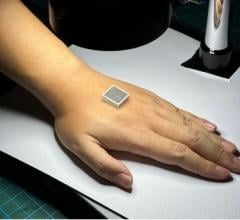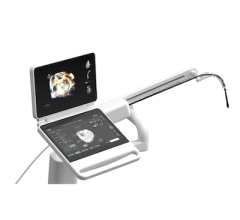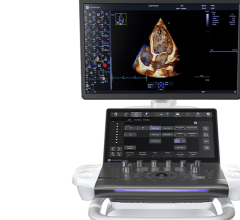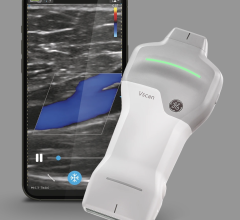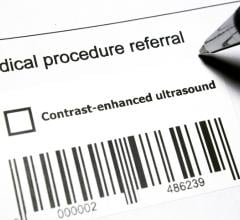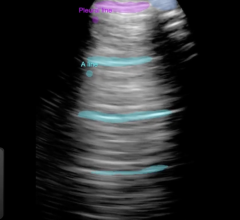August 18, 2008 - GE Healthcare along with Olympic medical leaders today announced at the Beijing 2008 Olympic Games, initial findings that recognize risks for sudden cardiac death and musculoskeletal injuries before they happen.
The findings come from two Olympic athlete research studies conducted since the Torino 2006 Olympic Winter Games aimed at demonstrating that health monitoring and early intervention may lead to injury prevention and enhanced health.
Dr. Malissa Wood, cardiologist, Massachusetts General Hospital in Boston said their work with Olympic athletes have allowed them to identify healthy patterns of heart enlargement that can differentiate it from hypertrophic cardiomyopathy. Previously, it was believed that heart size is indicative of risk of sudden cardiac death (SCD); however, Dr. Wood’s research with the USA Weightlifting and U.S. Men’s Rowing teams has shown that it is the health of the systolic or blood-pumping action - not the heart size - that is the distinguishing factor of a healthy heart. This study is being conducted using GE Healthcare’s Vivid i cardiac compact ultrasound technology.
“As a result of these findings, we are in the process of developing a cardiac fitness index to be released later this year that will help trainers and coaches understand how cardiac conditions impact performance of high-endurance athletes,” Dr. Wood said. “Our work also will provide healthcare professionals with insight into new, more effective ways of assessing and treating heart disease for the general public.”
Based on Dr. Wood’s findings, Dr. Patrick Schamasch, medical director of the International Olympic Committee (IOC), has recommended routine cardiac monitoring of Olympic athletes.
“I fully support the action to have preparticipation cardiovascular screening mandatory for elite athletes.” he said. “This will evaluate athletes before participating in sports for the purpose of identifying (or raising suspicion of) abnormalities that could provoke disease progression or sudden cardiac death. Ensuring the well-being of all athletes is the IOC’s priority, and we feel that the identification of the relevant diseases will allow clinicians to make decisions earlier on, of whether a player can stay in the game or not, but above all tailor their training programs to best meet their needs and ensure athlete safety”
Since 2005, Dr. Marnix van Holsbeeck from the Henry Ford Health System in Detroit has been studying how ultrasound scans can identify weaknesses in an athlete’s musculoskeletal structure before an injury occurs. Initial results from this research has demonstrated an incidence of asymptomatic injuries in several of the athletes, in a higher than expected incidence in female athletes. This study is being conducted with athletes from the USA Weightlifting, USA Boxing, and the U.S. Women’s National Soccer teams using GE Healthcare’s LOGIQ i ultrasound technology.
“We were surprised to find that athletes who trained at the highest level with no sign of pain showed early signs of potential injury during routine scanning,” said van Holsbeeck. “We’ve found that ultrasound technology can highlight problems with structure and with mobility of tissues that no other examination technique can show.”
“We train so hard as athletes that little injuries can lead to further injuries,” said Heather Mitts, defender on the U.S. Women's National Soccer Team, who participated in Dr. van Holsbeeck’s research study. “Through these routine scans, we can know if we should sit out, but if we know that we can keep going, we can train at the highest level.”
GE is the provider of a wide range of products and services for the Olympic Games. GE works closely with host countries, cities and organizing committees to provide infrastructure solutions for Olympic venues including power, lighting, water treatment, transportation and security, and to supply hospitals with ultrasound and MRI equipment to help doctors treat athletes. In addition, NBC Universal, a division of GE, is the exclusive U.S. media partner of the Olympic Games, with its partnership also extending through 2012.
For more information: www.ge.com/olympicgames, www.gehealthcare.com

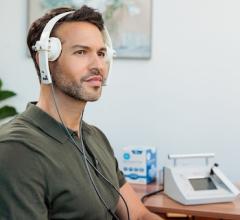
 January 28, 2026
January 28, 2026 

